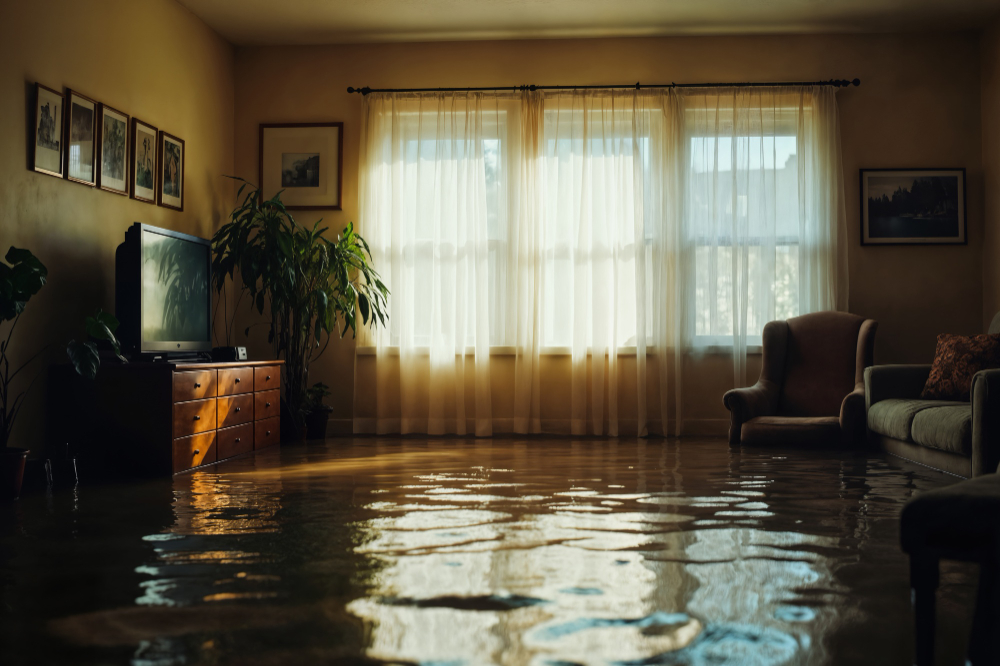 (888) 979-7969
(888) 979-7969
 (888) 979-7969
(888) 979-7969

Filing a flood damage claim can feel overwhelming, especially when you're already dealing with the stress of water damage to your property. Many Florida homeowners find themselves asking the same crucial questions when navigating the claims process. Understanding these answers beforehand can save you time, money, and frustration during an already challenging situation.
Whether your property has suffered from storm surge, heavy rainfall, or burst pipes, knowing what to expect from your insurance claim can make all the difference. This guide addresses the most frequently asked questions about flood damage claims to help you protect your interests and maximize your settlement.
One of the biggest misconceptions homeowners have is assuming their standard homeowner's insurance covers flood damage. Standard homeowner's policies typically exclude flood damage caused by natural disasters like hurricanes, storm surge, or rising groundwater.
Flood insurance is a separate policy, usually purchased through the National Flood Insurance Program (NFIP) or private insurers. This coverage specifically protects against water damage from flooding, while your homeowner's insurance may cover sudden water damage from burst pipes or appliance malfunctions.
Understanding which policy applies to your situation is crucial before filing any claim. A public claims adjuster in Orlando, FL can help determine which insurance should cover your specific damage and ensure you're filing with the correct provider.
Time is critical when filing flood damage claims. Most insurance policies require you to report damage within a specific timeframe, typically:
Don't wait to start the process. Even if you're unsure about the extent of damage, notify your insurance company immediately. Document everything with photos and videos before beginning any cleanup or repairs.
Proper documentation can make or break your flood damage claim. Insurance companies require extensive proof of both your property's pre-loss condition and the damage that occurred. Essential documentation includes:
Before the Loss:
After the Loss:
Many homeowners realize too late that they lack sufficient documentation of their property's pre-loss condition. Start creating a comprehensive home inventory now, before you need it.
Insurance coverage varies significantly based on your specific policy, the cause of flooding, and the items damaged. NFIP policies have standardized coverage limits and exclusions, while private policies may offer more flexibility.
Common coverage limitations include:
Your insurance adjuster will assess damage based on your policy's terms, but their initial assessment may not capture the full extent of your losses. Having an independent evaluation can reveal damages or coverage options you might otherwise miss.
The flood damage claims process timeline varies based on several factors, including the complexity of your case, the extent of damage, and how quickly you provide required documentation.
Typical timelines include:
Complex cases involving disputes over coverage, extensive damage, or multiple properties can take several months to resolve. Hurricane seasons often create backlogs that extend these timeframes significantly.
Insurance companies often provide initial settlement offers that fall short of covering actual repair costs and losses. If you believe your settlement is inadequate, you have several options:
Review your policy carefully to understand your coverage limits and exclusions. Sometimes homeowners discover additional coverage they weren't initially offered.
Obtain independent estimates from licensed contractors who can provide detailed repair assessments. These estimates often reveal damage that insurance adjusters missed or undervalued.
File a formal appeal with your insurance company if you have evidence supporting a higher settlement amount.
Consider professional representation from a public claims adjuster who can negotiate on your behalf and ensure you receive fair compensation.
While you can file and manage your flood damage claim independently, the complexity of insurance policies and the claims process often benefits from professional expertise. Public claims adjusters work exclusively for policyholders, not insurance companies, and can provide valuable services including:
Consider professional help especially if you're dealing with extensive damage, coverage disputes, or if you're overwhelmed by the process while trying to restore your property and normal life.
Flood damage claims don't have to be a battle you fight alone. Understanding your rights, maintaining proper documentation, and knowing when to seek professional help can significantly impact your claim's outcome. The most important step is acting quickly to protect your interests and preserve your claim.
If you're looking for a public claims adjuster in Orlando, FL, contact Ultra Property Damage today for a free consultation. Their experienced team can evaluate your situation, explain your options, and help ensure you receive the fair settlement you deserve.